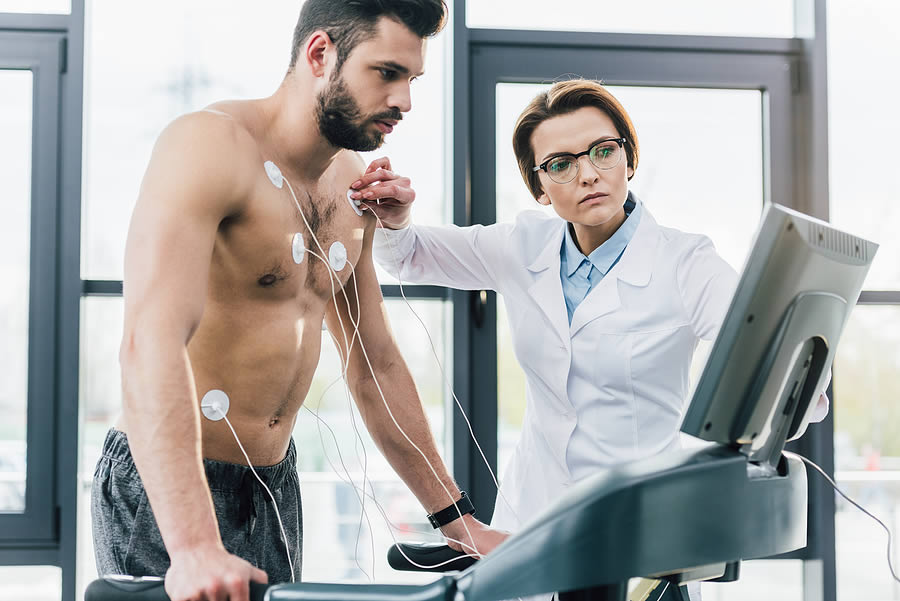
Our hearts work tirelessly to keep us going, but sometimes they need a little extra attention. That's where stress testing comes in. Picture this: you've been experiencing inexplicable chest pain, shortness of breath, or fatigue during physical activity – even light physical activity. It's concerning, and you're not sure what's going on. Well, stress testing could provide some much-needed answers.
In this brief article brought to you by the professionals at Cardiovascular Specialists, we explore and discover what stress testing is all about! If you are looking for a cardiologist, or heart doctor, in the area, then give us a call to schedule a convenient appointment or arrange an urgent walk-in appointment as soon as possible.
Stress testing, also known as an exercise stress test or treadmill test, is a diagnostic procedure used to evaluate how well the heart functions – much like an electrocardiogram (EKG). However, while the average EKG is done while laying down, stress testing involves monitoring the heart's response while the person exercises on a treadmill or stationary bike.
During a stress test, the patient is connected to an EKG machine to record the heart's electrical activity. Blood pressure and heart rate are monitored throughout the test. The intensity of exercise gradually increases, typically in stages, to raise the heart rate and stress the cardiovascular system.

Though an ordinary EKG also records the heart’s activity, a cardiologist may order a stress test for several reasons:
During the stress test, electrodes will be attached to the patient’s chest, and they will exercise on a treadmill or stationary bike, gradually increasing intensity as instructed by the cardiologist or healthcare provider.
While the test may be tiring and increase your heart rate, there is generally no significant pain involved. However, individuals should communicate any discomfort or symptoms during the test to the healthcare team.
When preparing for a stress test, wear loose-fitting, comfortable clothes and supportive shoes suitable for exercise. Also avoid eating a heavy meal a few hours before the test, as it can interfere with accurate monitoring.
Your healthcare provider will give you a thorough explanation of how to prepare and what to expect.

If you are experiencing severe or chronic heart pain, or if you are concerned about your heart, then waste no time in seeing a healthcare professional. Residents in the area looking for a cardiologist can call Cardiovascular Specialists to schedule an appointment or arrange an urgent walk-in appointment as soon as possible.